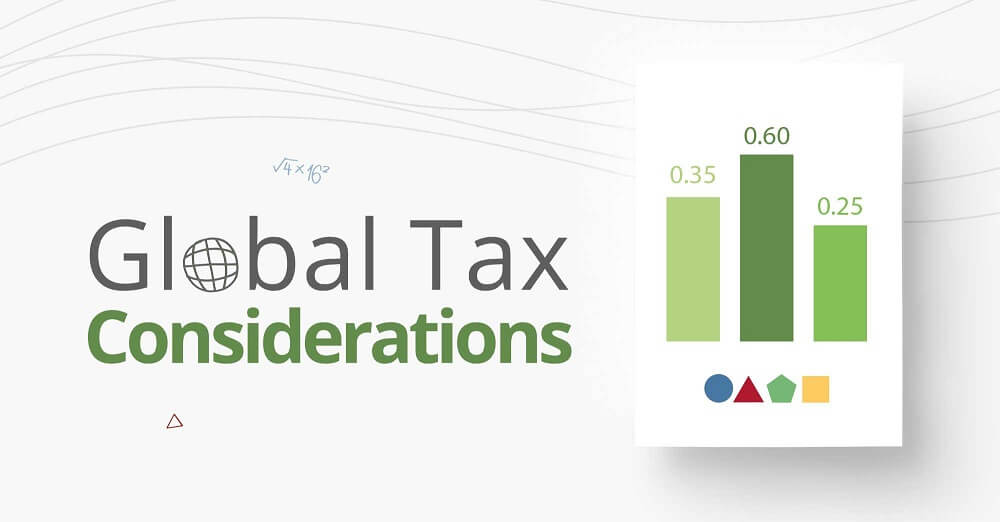The traditional image of the mobile employee as a traveling salesperson has become extremely outdated. Given advances in technology, the global reach of companies and changes to work practices which came about as a result of the Pandemic many employees will now have had a discussion about some form of hybrid, off-site or remote working situation.
Employee global mobility works to meet expanding business needs and is also beneficial in getting specific skills and talents from places around the world which may be rarer or unavailable in the company’s home country. When it comes to attracting and retaining this in-demand talent equity compensation packages which aim to increase employee satisfaction can be extremely useful. Therefore it makes sense that employers would want to be able to offer equity-based compensation to their mobile employees. But with increased mobility and cross-border activities come extra considerations.
Here are some of our top tips for managing your mobile employees and which could help all parties to get the most out of your equity compensation offering. After all at Global Shares, employee equity, simplified – it’s what we do.
The role of the administrator
Make sure that you have an administrator appointed. They will need to have access to the right supports to ensure the correct policies are put in place to address mobility, including details of what the law in each jurisdiction is.
Tracking participants
Where exactly are your employees working from and is that list being regularly updated?
It might seem like an obvious one but often the things that appear so are what can trip companies up. Ensure that you are tracking your traveller, mobile and commuter populations, which includes not just long-term assignees and permanent transfers of 12 months or more, but those on short term assignment too.
The rules about issuing equity to employees can vary depending on where they are, for how long and potentially other factors. If you don’t have this information organized and up-to-date it could prove problematic at a crucial time from a tax or regulatory perspective. You don’t want to get the rug pulled on you.
Keep in mind that just because your people could potentially work from anywhere it doesn’t mean that they necessarily can.
PEO employees
Many small-to-medium sized business, or companies that have expanded internationally into a new territory, may use PEO (Professional Employer Organization) services, but it’s essential to be aware that mobility concerns might need to be addressed for these too. Depending on the circumstances there could be certain legal requirements around granting share plan access to this class of employee.
Furthermore where PEO employees migrate to becoming de facto or even full-time employees further complications may arise, so you will need to be cognizant of these.

Tax considerations
Tax can be complex.
When it comes to managing tax withholding rates and payments for cross-border equity compensation benefits you will need to establish if it can be done through your normal Payroll Department or outsources and managed by an external 3rd Party. In some instances the onus may even be on the employee to declare, pay and sort their tax liabilities.
Be clear when establishing and communicating who is responsible for what role exactly in this process. If the individual doesn’t pay the taxes due then the repercussions could pose a potential risk to the company, such as fine or reputational damage.
Cross-border tax implications
It’s so important we’re going to say it again – be aware of cross-border tax implications.
If you’re using PEO employees, depending on the country they are based in, who constitutes the employer for social tax purposes can vary. In some circumstance it can be the organization which has the actual management of the employee, whereas in others it could be the legal contractual employer. You need to figure this out.
Set yourself up right from the start with the supports you’ll need in place to navigate the various restrictions for these global issues, bearing in mind they could be country, tax, regulatory or labor law specific.
Other local compliance requirements
There’s no one rule that’s going to apply globally.
Some countries have foreign exchange limitations. Certain countries, or even different regions within the same country, may have widely varying rules in terms of what constitutes non-compliance when it comes to withholding and reporting. Others may have additional tax reporting requirements for equity compensation, e.g. a need to comply with the ESS reporting obligations. Depending on the jurisdiction this reporting might be the employer’s responsibility, but it could also be the issuer’s responsibility too.
In certain countries PEO employees may not be eligible to participate in tax qualifying plans. In others extended exemptions for employee equity compensation may be offered, but these exemptions may not apply to PEO or non-employees.
Local jurisdictional limitations need to be considered too. For example, in China some of the rules in place in order for people to acquire equity require the company to have a local subsidiary, have safe approval and be from a public company. The Philippines on the other hand has strict securities rules, requiring companies to register a certain amount of shares.
Be aware that these rules and restrictions will vary from region to region and may depend on account criteria such as your company status, employee type, etc.
Exercising options
What happens when your employee wants to exercise their stock options? What tax implications arise, for which parties do these apply, who is notified of them and who has to complete an action?
Are there any special local considerations due? For example is there a withholding period or a reporting liability requirement for your Payroll or Compliance Departments?
Again this can vary depending on both the country and the type of taxable event, which is why it’s crucial to have all the information to hand and up-to-date.
Bonus Consideration: Be prepared
A failure to plan is often going to generate a failure point at some stage so get ahead of that curve. Seek professional advice, determine what concerns apply specifically to your company, your employees, your unique circumstances and establish what has to be done to meet them fully. Ask the questions that need to be asked and don’t be shy about it either, especially if you’re unclear about something. Ignoring it isn’t going to make the problem go away.
Find out more and request a free demo
At Global Shares, with our dedicated team of over 300 equity professionals we can cover everything, from advising on forms of enrolment for participants to trading, compliance, tax and so much more in between.
Equity compensation, simplified – it’s what we do. Get in touch today.
JPMorgan Chase & Co., its affiliates, and employees do not provide tax, legal or accounting advice. This material has been prepared for informational purposes only, and is not intended to provide, and should not be relied on for tax, legal and accounting advice. You should consult your own tax, legal and accounting advisors before engaging in any financial transaction.
Please Note: This publication contains general information only and J.P. Morgan Workplace Solutions is not, through this article, issuing any advice, be it legal, financial, tax-related, business-related, professional or other. J.P. Morgan Workplace Solutions’ Insights is not a substitute for professional advice and should not be used as such. J.P. Morgan Workplace Solutions does not assume any liability for reliance on the information provided herein.



